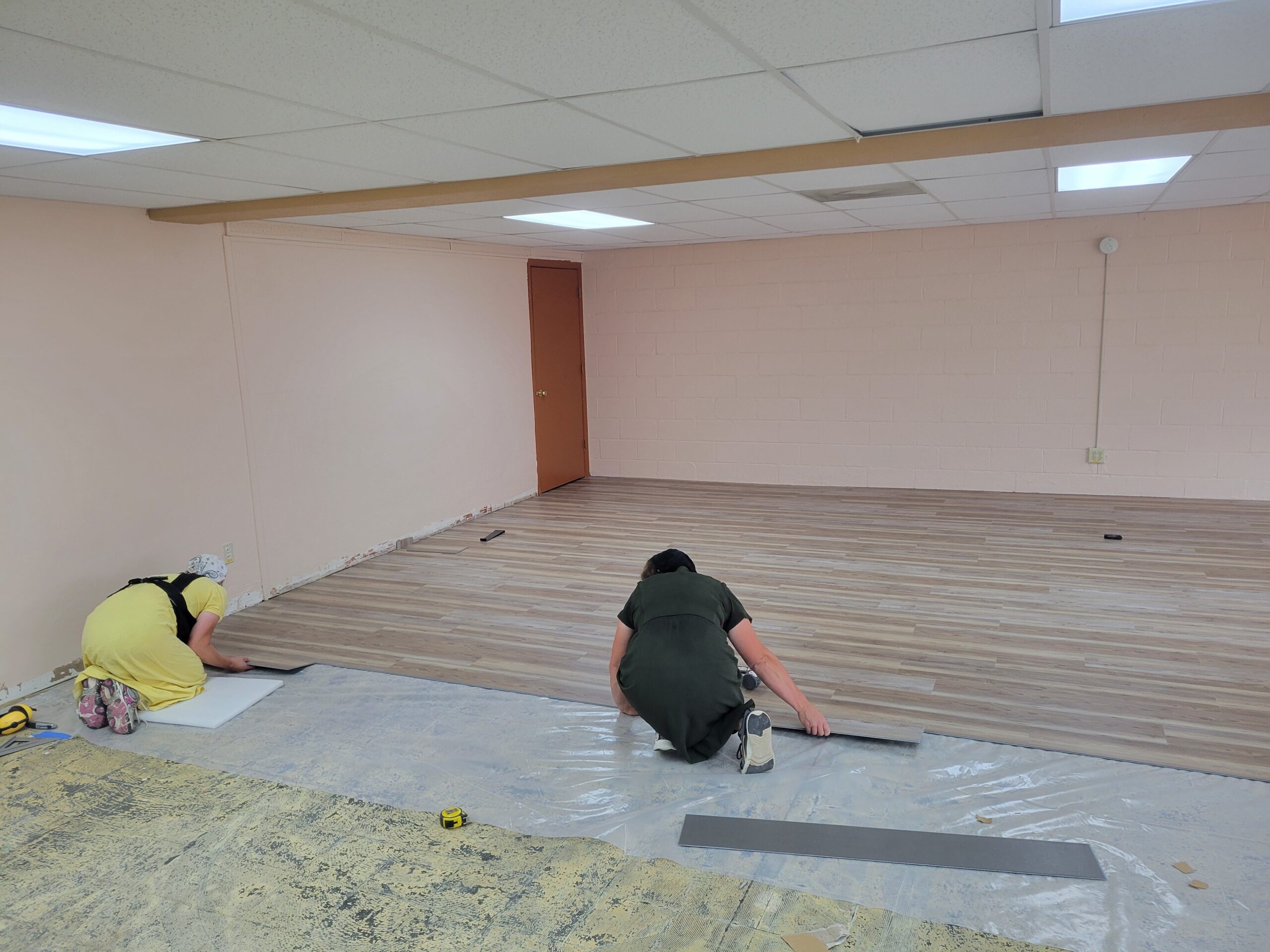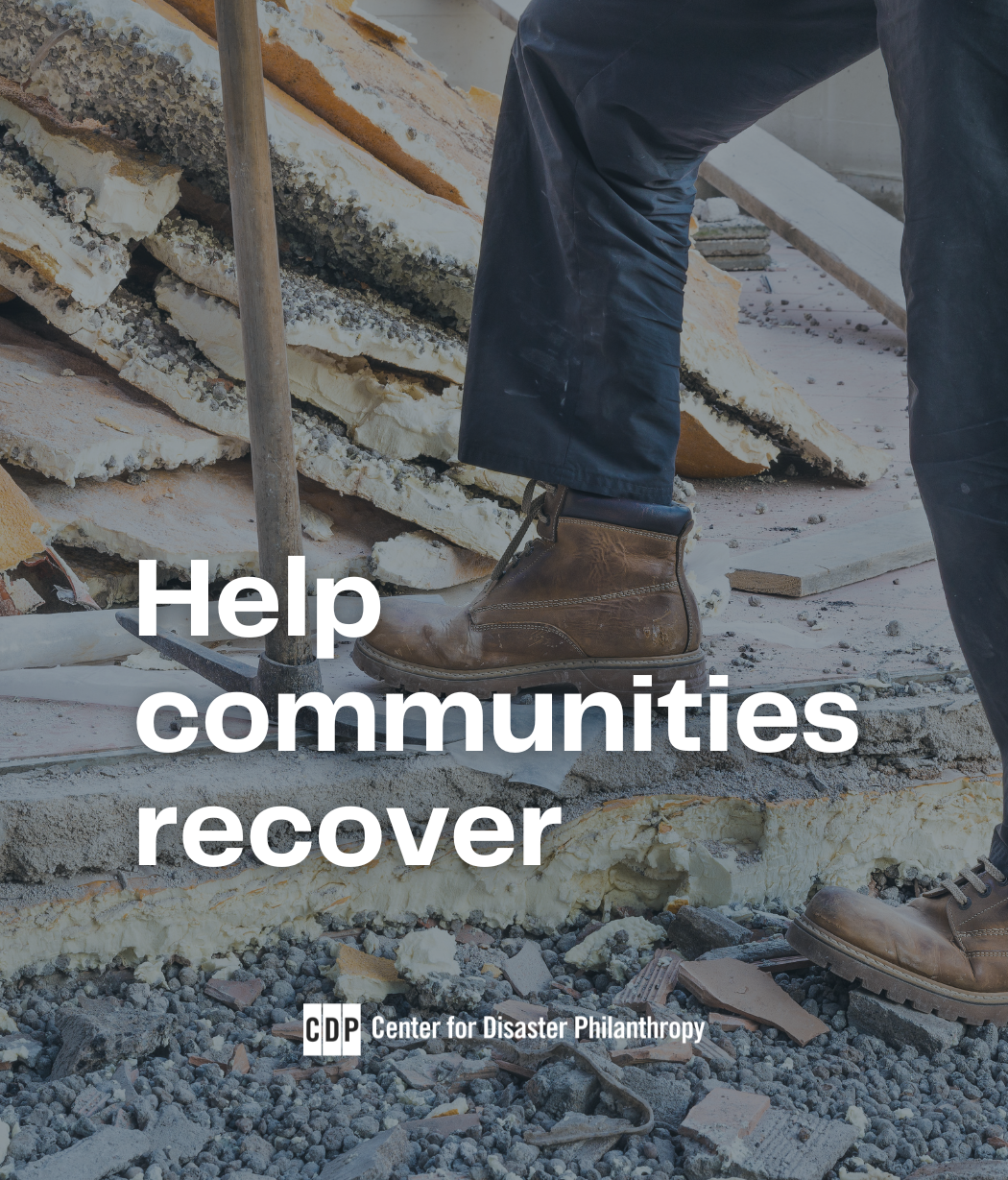CDP announces $6.8 million in grants from the Truist Foundation Western North Carolina Recovery and Resiliency Fund

It has been a year since Hurricane Helene made landfall in Florida, eventually weakening to a tropical storm, but bringing wind damage and unprecedented levels of flooding across swathes of the southeastern U.S., including parts of the Southern and Central Appalachian Mountain region. Mountain flooding can bring particular danger and devastation, and in Western North Carolina, that devastation included the tragic deaths of 108 people and the destruction of homes, businesses and critical infrastructure. Even as we celebrate the many incredible strides in recovery we have witnessed since September 2024, many survivors continue to grapple with grief and trauma on a daily basis as recovery from catastrophic events often takes years.
In January, CDP announced the launch of the Truist Foundation Western North Carolina Recovery and Resiliency Fund, a partnership with Truist Foundation that is part of a $725 million commitment from Truist and Truist Foundation called Truist Cares for Western North Carolina. Through the fund, we’re addressing medium- and long-term needs to help strengthen the region’s housing and small businesses. Our grantmaking is guided by our assessment of damages, systemic marginalization, community capacity and unmet needs to support the area’s equitable recovery. In June, we announced $3.3 million in grants to four organizations actively leading recovery efforts.
Now, we’re pleased to announce a second round of grants from the Truist Foundation WNC Recovery and Resiliency Fund totaling just under $6.8 million. Learn about our grantee partners:
- Appalachian Community Capital Development Foundation was awarded $1 million to advance small business recovery and resilience in Western North Carolina through connection to community development financial institutions (CDFIs) as well as direct small business grant opportunities. Funds will also support technical assistance and organizational infrastructure development to sustain operations and strengthen planning around future disasters.
- Boone Area Chamber of Commerce Economic Development Commission Inc. Foundation received $250,000 for long-term economic recovery and small business resilience in Ashe, Avery and Watauga Counties. The funding will support direct subgrants and recovery trainings for small businesses.
- Carolina Farm Stewardship Association received $200,000 to support independent farmers through their Western North Carolina Food System Recovery and Resilience Initiative. Funding will support small business grant opportunities, technical assistance, and tools and resources for farms impacted by Helene.
- Children and Families Resource Center received $100,000 to support long-term housing recovery and supportive services through their disaster case navigation program in Henderson County.
- Colaborativa La Milpa, as fiscal sponsor for PODER Emma, received $500,000 for long-term housing recovery in the Carolina Wren Housing Cooperative in the unincorporated Buncombe County community of Emma. The funding will support mobile home replacement and refurbishment. It will also support first-time homebuyer education and economic recovery initiatives.
- High Country Caregiver Foundation received $350,000 for housing repair and replacement in Avery, Mitchell and Yancey Counties. The funding will support dozens of families enrolled in the organization’s kinship care case management system by repairing heavily impacted homes, including mobile homes. The initiative aims to stabilize housing to allow families to remain together and more fully participate in the organization’s support programs.
- Madison Alliance for Rebuilding Communities, through fiscal sponsor Community Housing Coalition of Madison County, received $488,625 for its Rebuild and Fortification Program. The funding will support direct repairs, rebuilds and mitigation, along with associated case management services, in rural Madison County communities.
- Mennonite Disaster Service was awarded $300,000 to support the renovation of a church into a dormitory to house cohorts of up to 40 skilled volunteers who will deploy throughout the impacted region to repair and rebuild homes and private-access bridges.
- Mitchell County Development Foundation received $510,000 to advance small business recovery. The funding will support small business grant opportunities in Spruce Pine and throughout the county to allow businesses to reopen or sustain operations.
- MountainTrue was awarded $750,000 to support waterway cleanup in Helene-impacted waterways. The initiatives will support small businesses that drive the outdoor recreation economy, monitor and help restore river water quality and enhance resiliency.
- National Community Pharmacists Association Foundation received $300,000 to support independent community pharmacies throughout Western North Carolina as they recover from Helene. This funding will support equipment, technical assistance, certification and access to workforce development resources that will increase community resilience.
- Northwestern Housing Enterprises, Inc., also known as Northwestern Regional Housing Authority (NWRHA), received $750,000 for long-term housing recovery. Funding will support the development of two affordable-housing communities in Yancey and Avery Counties.
- Pisgah Legal Services received $400,000 to provide no-cost disaster-related legal services to survivors and eligible disaster-impacted nonprofit organizations across 18 counties in Western North Carolina.
- Swannanoa Communities Together, via fiscal sponsor Asheville Creative Arts, Inc., received $300,000 for housing recovery, case navigation services and community-led disaster recovery initiatives for the unincorporated Swannanoa Valley.
- Transylvania Habitat for Humanity received $585,000 for housing recovery and case navigation services in Transylvania County. The funding will support sustainable long-term housing by delivering disaster-resilient housing solutions and reinforcing community infrastructure.
CDP is honored to be invited into the critical recovery work of each of these grantee partners and will continue to provide support as they begin grant activities. We greatly appreciate the opportunity afforded by Truist Foundation to engage deeply with Western North Carolina communities, learning from their innovation, local expertise and enduring persistence as they pursue equitable recovery for all who were impacted.

